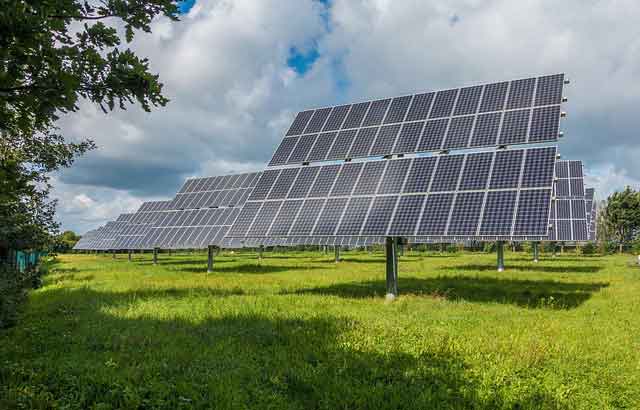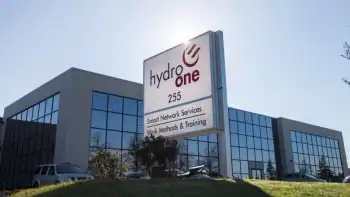Big businesses seek out solar as sector heats up
By Reuters
NFPA 70b Training - Electrical Maintenance
Our customized live online or in‑person group training can be delivered to your staff at your location.

- Live Online
- 12 hours Instructor-led
- Group Training Available
This month, several of the world's biggest technology and manufacturing companies - including Intel Corp and International Business Machines Corp - made major moves into the burgeoning solar power business.
That could be the start of a trend as corporate giants look to capitalize on the growing demand for cleaner energy sources.
"These announcements are a great indication of where the solar industry is going," Rhone Resch, president of industry trade group the Solar Energy Industries Association, said in an interview on the sidelines of the Renewable Energy Finance Forum conference in New York this week. "This is the beginning of both high-tech and energy companies getting into solar."
Solar power still makes up a tiny fraction of the world's energy consumption, but the makers of panels that transform sunlight into electricity are enjoying supercharged growth due to heightened concerns about climate change and rising prices on fossil fuels.
In the last few years alone, solar companies including San Jose, California-based SunPower Corp and Germany's Q-Cells AG have grown from small technology-focused start-ups into businesses with multibillion-dollar market capitalizations. Now, other companies want a piece of that fast-growing market.
A few tech companies, such as chip equipment maker Applied Materials Inc and SunPower stakeholder Cypress Semiconductor Corp, got into the solar business earlier this decade, recognizing the similarities between their own industries and technology-driven solar power. With their proven successes, others are following.
"What the strategic players bring is that ability to bring large-scale manufacturing," said Kevin Genieser, who heads Morgan Stanley's renewable energy investment banking practice. "We're expecting to see merger and acquisition activity ramp up in the solar space," he said at the conference.
This week, the world's largest maker of semiconductors, Intel, said it would spin off solar technology it developed into a start-up called SpectraWatt Inc, and IBM said it had joined forces with semiconductor process company Tokyo Ohka Kogyo Co Ltd (TOK) to develop more efficient solar power technologies.
Intel is leading a $50 million investment round in SpectraWatt, which will begin shipping its solar cells next year, while IBM and TOK plan to license their copper-indium-gallium-selenide thin film solar technology in the next two to three years.
Those moves came on the heels of Robert Bosch GmbH's ROBG.UL announcement earlier this month that it would buy German solar cell maker Ersol for 1.08 billion euros ($1.67 billion). Privately owned Bosch is the world's biggest automotive supplier.
Finally, also this month Hewlett-Packard Co (HPQ.N: Quote, Profile, Research, Stock Buzz), the world's biggest computer maker, said it would license its clear transistor technology to Livermore, California-based solar power company Xtreme Energetics.
Many said the interest from corporate stalwarts lends new credibility to solar power, proving that it is far from a fad.
"Intel, IBM and HP announcements of new solar initiatives (on the heels of Bosch acquisition of Ersol) validate solar's long-term opportunity," Piper Jaffray analyst Jesse Pichel said in a note to clients this week.
Even Tom Werner, chief executive of SunPower, agreed that with Intel and IBM in the business, financiers and others can't help but see solar as "the real deal."
Werner said IBM and Intel would certainly raise the competitive bar, but he added that SunPower's well-established business has a significant advantage.
"For us, it just makes us sharpen our sword a little bit more," Werner said in an interview. "The Intel thing, they are breaking ground now. We've been shipping for several years now, so if we can't stay in front of that, shame on us."
Resch and Pichel also said new entrants into the market, however large, were unlikely to hurt established players given that demand for solar panels far outpaces supply.
Still, there are some who say the big companies now coming into the solar fold may just be too late to the party.
"Today it may be a day late and a dollar short," said CRT Capital Group analyst Ashok Kumar. "Most of the domestic and overseas players have already built up scale."











